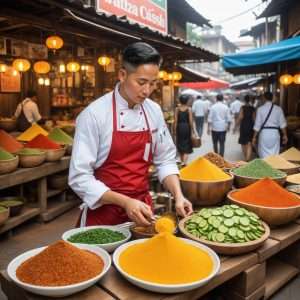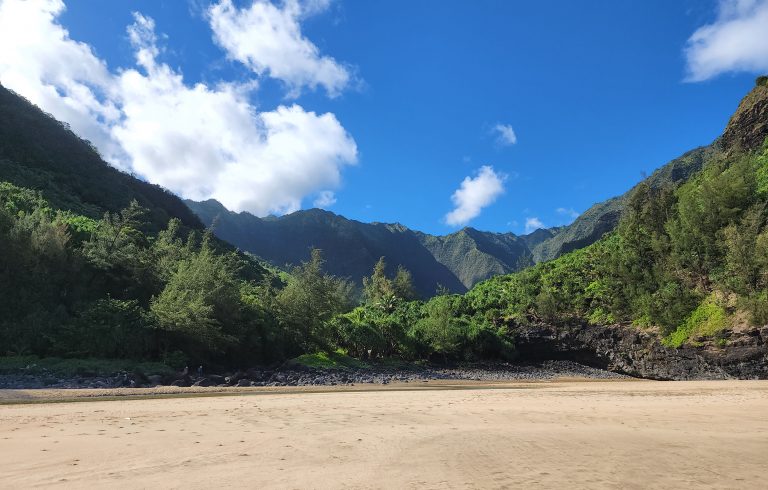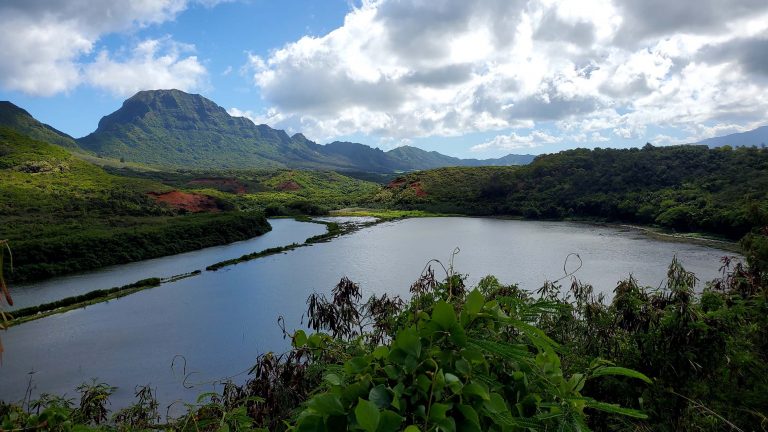Zombie Bunny is Reader-supported and may earn an affiliate commission through links on our site.
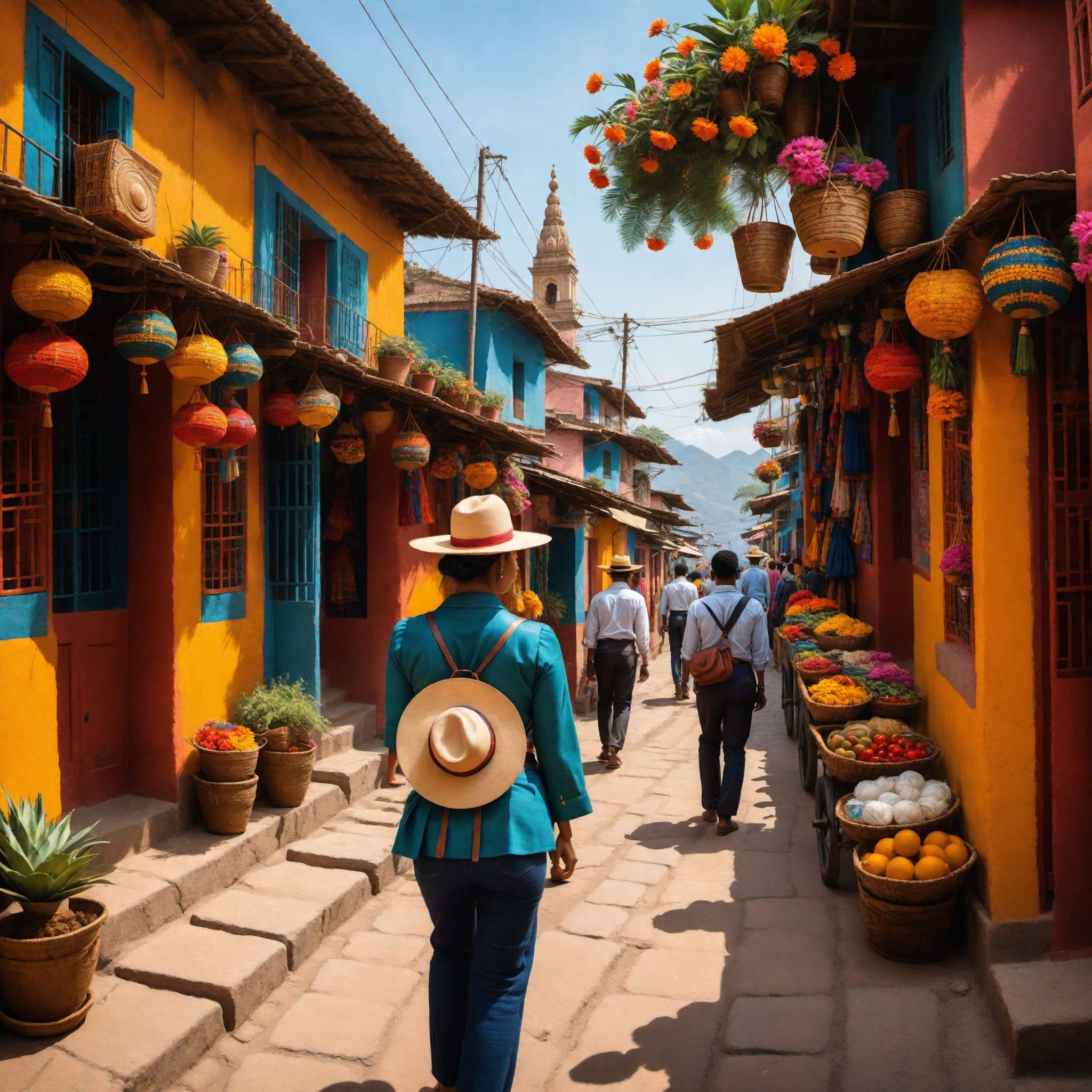
Embracing Local Culture: Essential Tips for Solo Travelers
Immerse yourself in local culture during your solo travels with these essential tips. #SoloTravel #CulturalImmersion
Unleash the thrill of self-discovery with solo travel. This blog takes you on a journey, exploring the freedom, growth, and connections that come with venturing alone into the world. Learn how to navigate safety concerns, engage with local cultures, and make sustainable travel choices. Discover how solo travel can transform you, challenging you to step out of your comfort zone and engage deeply with the world. Whether you’re a seasoned solo traveler or planning your first solo trip, this blog provides invaluable insights to enrich your journey.
Introduction: The Joy of Solo Travel
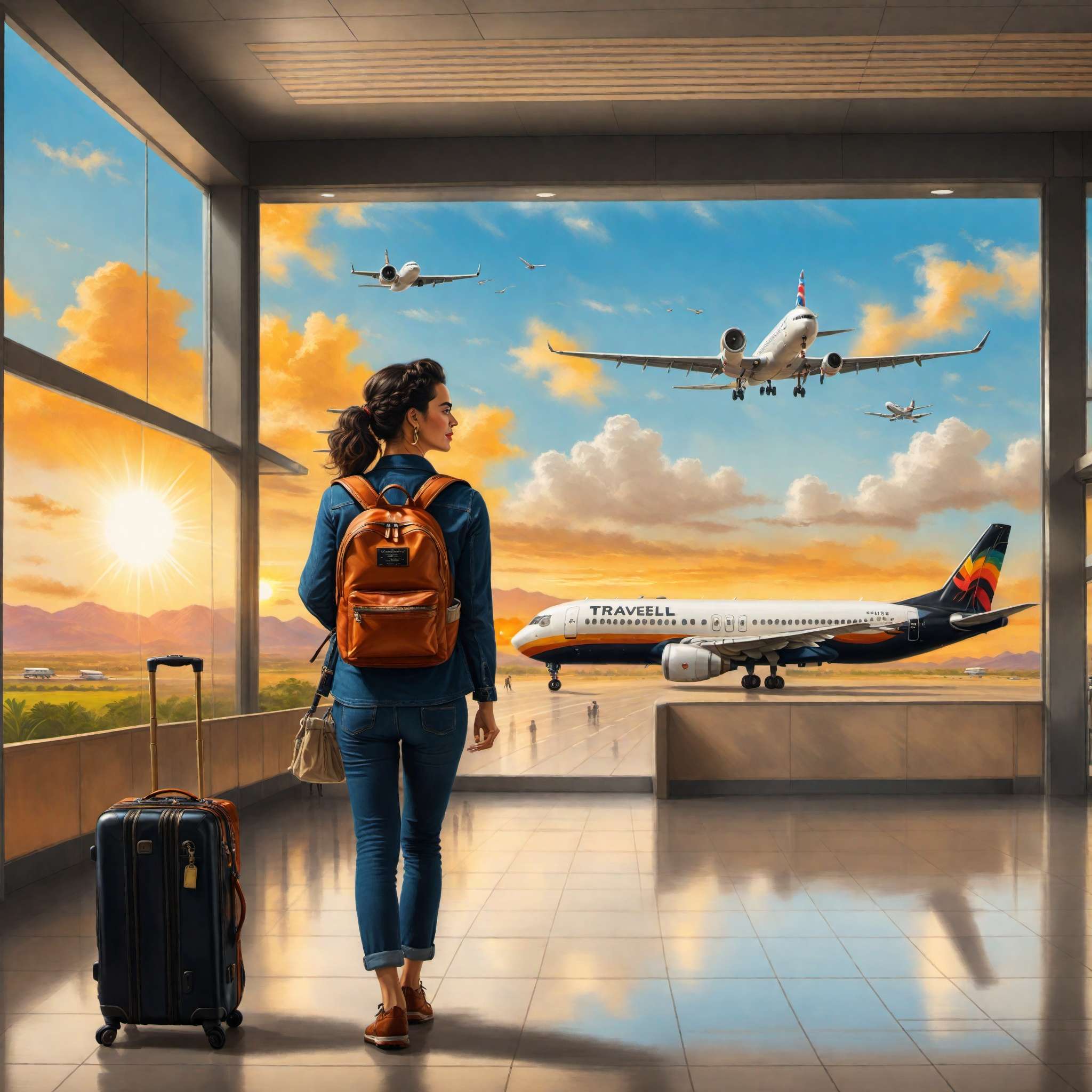
© Copyright , ZombieBunny.Org
Why travel solo
Traveling solo is an opportunity to veer off the beaten path, to explore at your own pace, and to truly immerse yourself in the culture of a new place. It’s an unparalleled experience that transcends the boundaries of traditional travel. It’s about embracing the very essence of freedom, stepping out of your comfort zone, and discovering who you truly are amidst the beautiful chaos of the world.
Solo travel brings with it an incomparable sense of liberty. You are the master of your itinerary with the freedom to make spontaneous decisions. One day, you might decide to explore a local market, the next, you might choose to unwind at a quaint cafe, immersing yourself in a book or the local ambience. There are no compromises to be made, no schedules to adhere to but your own. This freedom allows you to connect more deeply with your destination, engaging with locals, understanding their customs, and embracing their way of life.
Moreover, solo travel is a journey of self-discovery. As you navigate through new landscapes and cultures, you’re not just discovering new places, you’re also unraveling new facets of yourself. You learn to rely on your instincts, become more resilient, and grow as a person. The challenges and triumphs of solo travel pave the way for personal growth, making you more confident and self-reliant.
In essence, solo travel is not just about seeing new places. It’s about experiencing them, living them, and growing with them. It’s about embracing the unknown, one destination at a time, and in the process, embracing yourself.
Freedom and self-discovery
Solo travel is synonymous with freedom and self-discovery. It is a journey where you are the sole author of your experiences, free to write your own travel story. There’s no need to accommodate companions’ preferences or follow a group itinerary. Whether it’s watching a sunrise atop a mountain, lingering at a museum, or simply sitting at a café to people-watch, every decision is yours, and yours alone. This freedom allows you to shape your travel experience in the most authentic, personal way possible.
But this journey is about more than physical freedom, it’s also about emotional freedom. Solo travel provides a rare opportunity to disconnect from familiar surroundings and everyday routines, to reflect on your life, values, and aspirations. It’s a time to listen to your inner voice without the noise of daily life. This space for introspection often leads to significant self-discovery, as you uncover strengths and passions you never knew you had.
When you travel alone, you’re also more open to meeting new people and forming unexpected friendships. Interactions with locals and fellow travelers not only enrich your travel experience, they also provide a broader perspective of the world, challenging your beliefs and values. These experiences can lead to deep personal growth, making you more open-minded, understanding, and empathetic.
Ultimately, the freedom and self-discovery that comes with solo travel can transform your life. It’s about more than just seeing new sights; it’s about discovering new perspectives, embracing new experiences, and finding a new you.
Overcoming the fear of solo travel
The thought of solo travel can be intimidating. The fear of loneliness, safety concerns, and the challenge of navigating unknown territories can often deter potential solo travelers. However, it’s important to understand that these fears are natural and can be overcome with preparation and the right mindset.
Feeling lonely on your journey is a common concern, but solo travel doesn’t necessarily mean loneliness. It often opens opportunities for meeting like-minded travelers or friendly locals. Engaging in local activities, staying in social accommodations like hostels, or joining group tours for certain activities can help you make connections and combat feelings of solitude.
Safety is another common fear, especially for first-time solo travelers. Researching your destination thoroughly, staying aware of your surroundings, and following local advice can mitigate safety concerns. It’s also crucial to keep in mind that most people around the world are kind and helpful. Your safety is often a shared concern among the people you’ll meet.
Navigating unknown territories can be daunting, but it’s also part of the adventure. The internet, travel apps, and local advice are your allies. And remember, getting lost isn’t always a bad thing. Some of the best travel experiences come from unplanned detours.
Overcoming the fear of solo travel is a rewarding journey in itself. It’s about replacing fear with curiosity, and doubts with anticipation. And once you’ve taken the leap, you’ll find that the world is a much friendlier place than you’d imagined, and that you’re capable of more than you knew.
Embracing Local Culture: A Key to A Rich Travel Experience
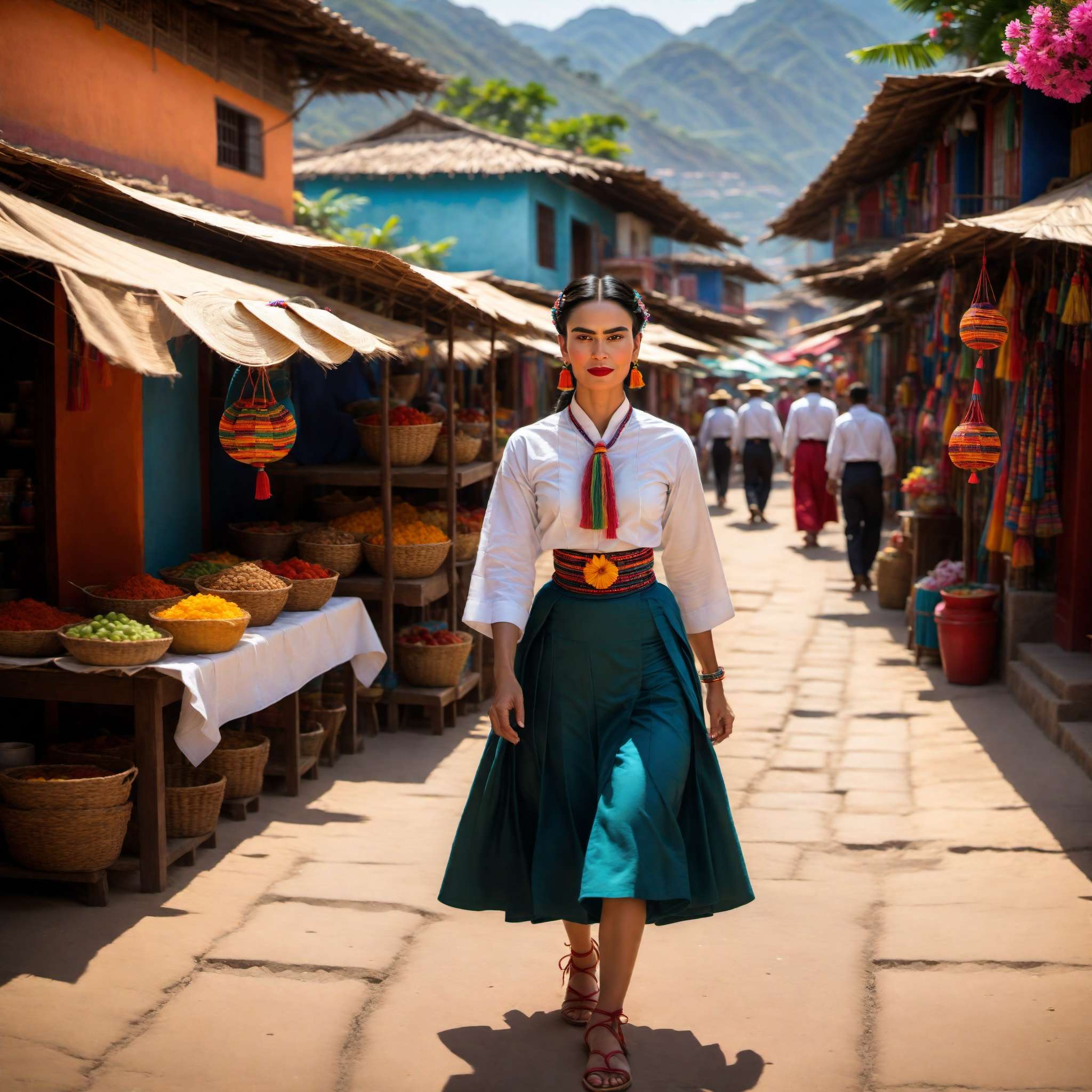
© Copyright , ZombieBunny.Org
Why embracing local culture is important
Embracing local culture is a cornerstone of meaningful travel, particularly when traveling solo. It’s the key that unlocks a more authentic and enriching travel experience. It allows you to step beyond the well-trodden tourist paths, delve deeper into the heart of the destination, and gain a better understanding of the people, traditions, and customs that define it.
In essence, embracing local culture is about respect and connection. It’s about respecting the traditions, norms, and values of the place you’re visiting. It’s about connecting with the local people, understanding their way of life, and appreciating the uniqueness of their culture. This approach not only enriches your travel experiences but also fosters greater mutual respect and understanding between you and the locals.
Moreover, engaging with local culture enhances your personal growth. It exposes you to different perspectives, helping you to broaden your worldview and challenge your preconceptions. It also fosters empathy and understanding, essential traits for navigating our increasingly interconnected world.
Finally, embracing local culture can add a layer of joy and excitement to your travel experience. Whether you’re learning a local dance, sampling a traditional meal, or participating in a local festival, these immersive experiences create unforgettable memories and stories to share.
In short, embracing local culture is not just a way to enhance your travel experience. It’s also a way to contribute positively to the places you visit, promote cultural exchange, and develop as a global citizen. So, as you pack your bags for your solo journey, remember to pack an open mind and a respectful attitude towards the cultures you’ll encounter.
Learning local customs and traditions
Learning local customs and traditions is a vital part of immersing yourself in a new culture. It’s a passport to deeper experiences, transforming you from an outsider into a participant, from a casual observer into an engaged traveler. This journey of learning not only enriches your travel experience but also fosters a greater sense of global understanding and mutual respect.
Customs and traditions are the lifeblood of a culture, reflecting its history, beliefs, and values. They offer valuable insights into the local way of life. Whether it’s a unique greeting, a traditional festival, or a local superstition, each custom and tradition holds a story, a piece of the local identity that adds depth and color to your travel experience.
Learning local customs and traditions also opens doors to more authentic interactions with locals. When you show respect for local customs, you’re signaling your interest in and respect for the local culture. This can break down barriers, fostering more meaningful connections with the people you meet.
So, how do you learn about local customs and traditions? Start with thorough pre-travel research. Read about the destination’s history, customs, etiquette, and festivals. Once you’re there, ask locals, participate in cultural experiences, and observe daily life. Remember, learning is an ongoing process, so stay curious, respectful, and open-minded.
In essence, learning local customs and traditions is a journey of discovery, one that leads to richer travel experiences, genuine connections, and a deeper understanding of our diverse world. It’s a journey well worth taking.
Experiencing local cuisine
Experiencing local cuisine is a sensory journey into the heart of a culture. It’s an exploration of taste, aroma, texture, and tradition that offers a deliciously direct connection to the history, geography, and soul of a place. As a solo traveler, indulging in local cuisine is a must-do, not just for the pleasure it brings to your palate, but for the cultural insights it serves up.
Local cuisine tells a story of the place and its people. Every dish, every ingredient, every cooking method has a tale to tell about the area’s climate, geography, and history. From farm-fresh produce at a local market to a centuries-old recipe passed down through generations, each culinary experience offers a slice of local life.
Sampling local cuisine also fosters connections with locals. Whether it’s sharing a meal, cooking a traditional dish with a local family, or simply asking for a restaurant recommendation, food can be a catalyst for meaningful interactions. It’s a common language that bridges cultural differences and sparks conversations.
So, how do you experience local cuisine? Visit local markets, try street food, take a local cooking class, or dine at a family-run restaurant. Be adventurous and open-minded, but also remember to respect local dietary customs.
In essence, experiencing local cuisine is an integral part of the travel experience. It’s a feast for the senses, a history lesson, a cultural exchange, and a celebration of diversity, all served up on a plate. So, on your solo travels, remember to savor the journey, one bite at a time.
Communication: Breaking the Language Barrier
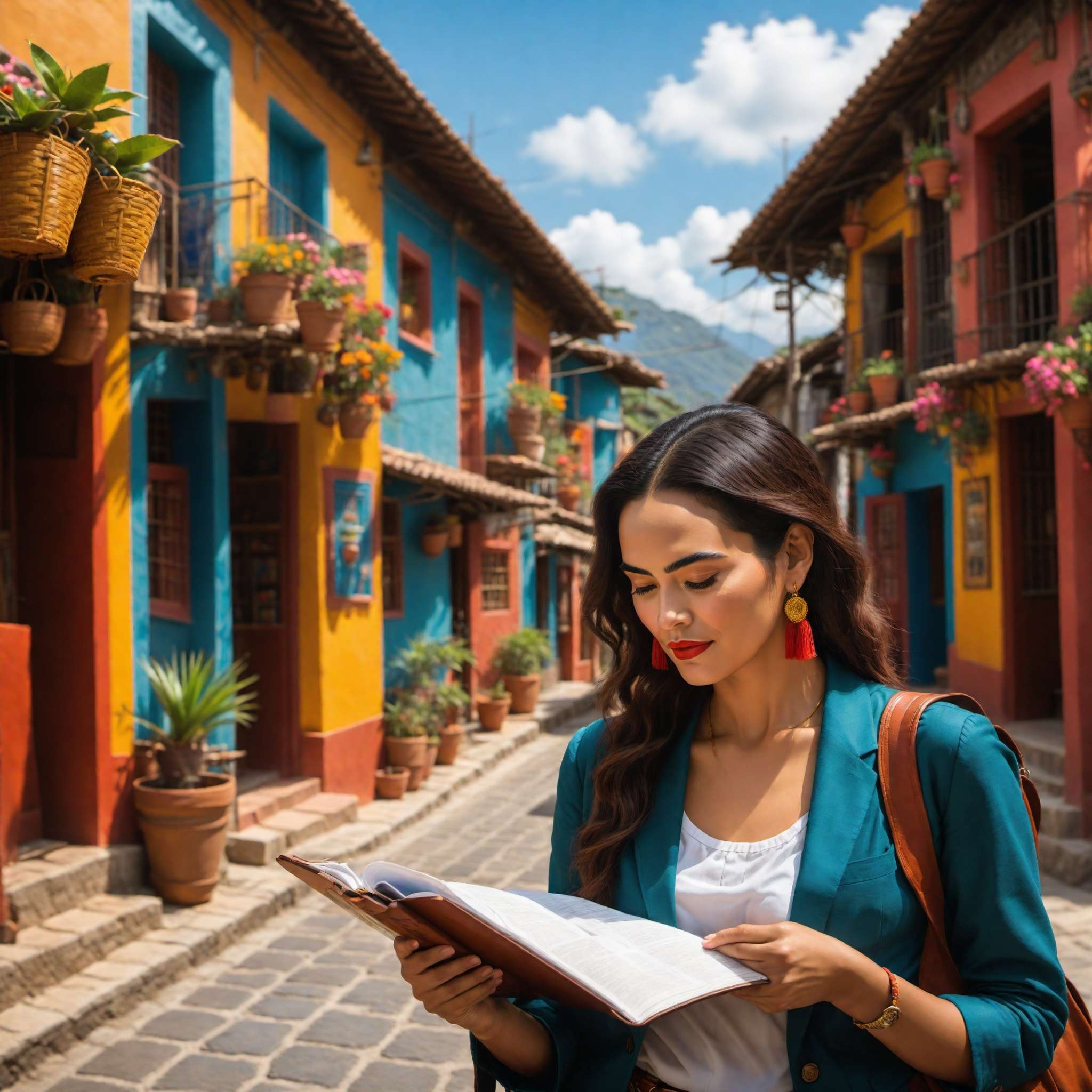
© Copyright , ZombieBunny.Org
Importance of communication while traveling
Effective communication is a vital skill for any traveler, and even more so for solo travelers. It serves as a bridge between cultures, helping you navigate unfamiliar environments, form connections with locals, and enrich your travel experience. Whether it’s asking for directions, negotiating prices at a local market, or engaging in a cultural exchange, good communication can open doors, solve problems, and create memorable experiences.
Communication is more than just language. While learning a few basic phrases in the local language can make your travel experience smoother and more rewarding, non-verbal communication is equally essential. Body language, gestures, and facial expressions can convey respect, understanding, and friendliness, helping you connect with locals even when you don’t speak the same language.
Good communication also involves active listening and observation. Paying attention to local customs and social cues can help you understand the cultural context and communicate more effectively. This sensitivity to the local culture can enhance your interactions with locals and deepen your understanding of the place.
Moreover, communication is a key to safety. Being able to express yourself clearly and understand others can help you avoid misunderstandings and navigate potential challenges. Whether it’s asking for help in an emergency or understanding local laws and customs, effective communication can contribute to a safer travel experience.
In essence, communication is a vital tool in the solo traveler’s toolkit. It’s a skill that enhances your travel experience, fosters cross-cultural understanding, and contributes to a safer, more enjoyable journey. So, as you prepare for your solo adventure, remember to pack your communication skills along with your essentials.
Learning a new language
Learning a new language, or at least a few phrases, is an invaluable part of preparing for solo travel. It’s a passport to more meaningful interactions, a closer connection with the local culture, and a more immersive travel experience. Even a basic understanding of the local language can transform your journey from a simple sightseeing trip into a rich cultural exchange.
When you make the effort to communicate in the local language, you’re showing respect for the culture and people of the place you’re visiting. This can open doors to more authentic experiences and deeper connections with locals. A simple greeting, a thank you, or a polite request can go a long way in fostering goodwill and mutual respect.
Moreover, language learning can enhance your travel experience in practical ways. It can make navigating your destination easier, from reading signs and menus to asking for directions. It can also be a safety tool, enabling you to understand important information and express yourself in emergencies.
So, how do you learn a new language? Start by learning key phrases and vocabulary related to travel. Use language learning apps, take a language course, or join a language exchange group. Practice listening and speaking as much as possible. And remember, it’s OK to make mistakes. That’s how you learn.
In essence, learning a new language is both a key to a richer travel experience and a journey of personal growth. It’s a skill that can enhance your solo travel adventure and enrich your life beyond the journey. So, as you prepare for your solo trip, consider adding language learning to your pre-travel checklist.
Using language translation apps
In today’s digital era, language translation apps have become an essential tool for travelers, particularly for solo travelers. They serve as a helpful companion, bridging language gaps and making communication in a foreign language much more manageable. From asking for directions to understanding a menu or negotiating a taxi fare, a good translation app can make your travel experience smoother and less stressful.
Language translation apps offer numerous features to aid communication. Instant translation, voice recognition, and even image translation are just a few of the functionalities that can come in handy during your travels. Some apps also work offline, which is a lifesaver when you’re in a location with limited internet access.
Using translation apps also fosters independence and confidence. They empower you to navigate unfamiliar environments, interact with locals, and immerse yourself in the local culture more confidently. They can serve as a safety tool, allowing you to understand important information and communicate effectively in emergencies.
However, while translation apps are incredibly useful, it’s important to use them as a tool, not a crutch. They should complement, not replace, efforts to learn and use the local language. And remember, while translation apps can help with communication, nothing beats a smile and a respectful attitude.
In essence, language translation apps are a valuable tool in the solo traveler’s toolkit. They can help bridge the language gap, enhance your travel experience, and give you the confidence to embrace the adventure of solo travel. So, before you embark on your journey, make sure to download a reliable translation app and familiarize yourself with its features.
Pre-Travel Research: Knowing Your Destination
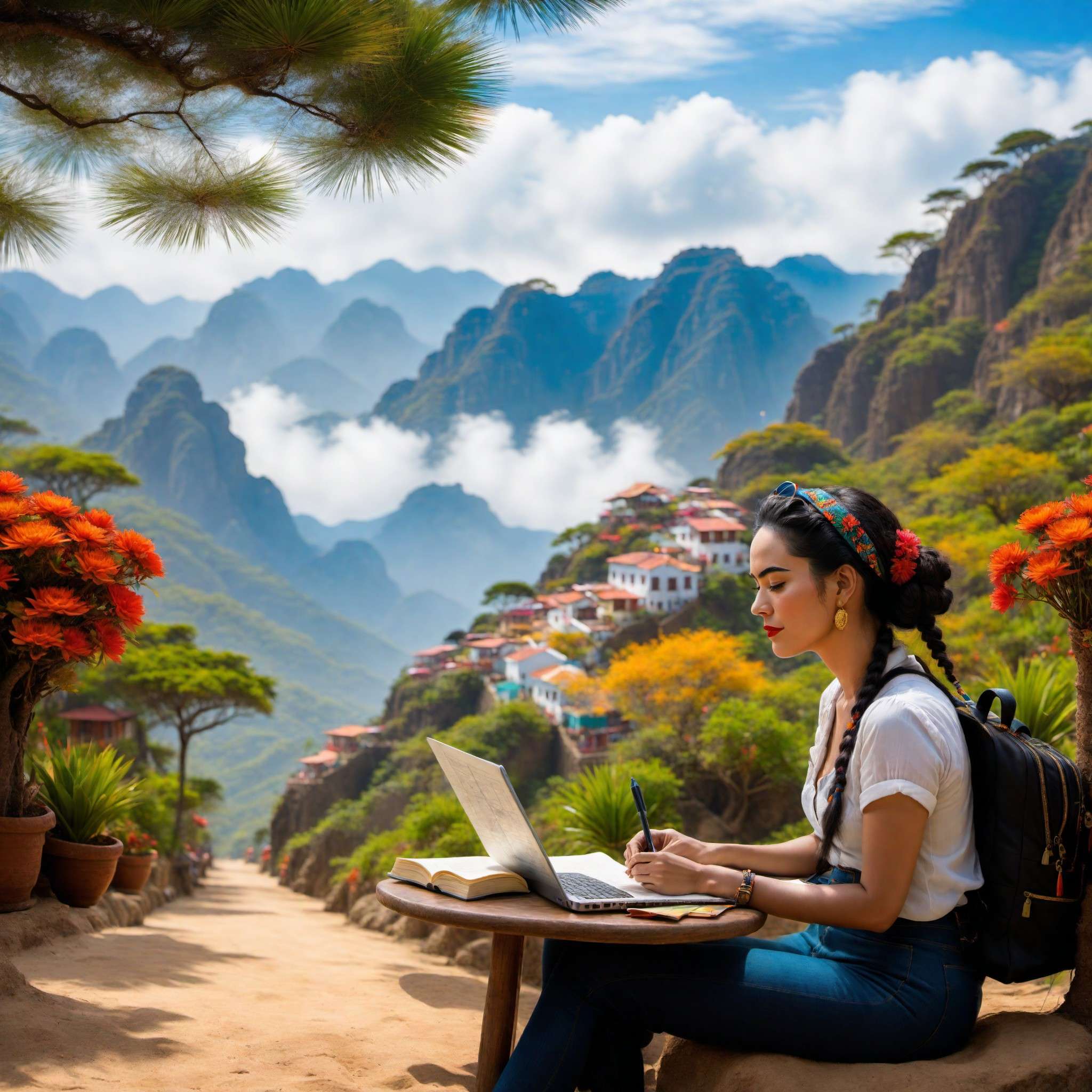
© Copyright , ZombieBunny.Org
Why research is crucial before traveling
Pre-travel research is a crucial step in planning a successful solo journey. It equips you with the knowledge to navigate your destination effectively, make informed decisions, and engage more deeply with the local culture. Essentially, it prepares you mentally and logistically, setting the foundation for a rewarding and hassle-free travel experience.
Understanding your destination before you arrive can significantly enhance your travel experience. It allows you to identify key attractions, hidden gems, local customs, and cultural nuances. This knowledge not only enriches your understanding of the place but also helps you make the most of your time, ensuring you don’t miss out on unique experiences.
Research is also a key to safety and preparedness. It enables you to understand the local laws, health advisories, safety concerns, and emergency services. It also helps you plan your logistics, from transportation and accommodation to packing the right gear for the local climate.
Moreover, pre-travel research can help you plan your budget effectively. Understanding the cost of living at your destination, from accommodation and food to local transportation, can help you manage your finances better and avoid unexpected expenses.
In the digital age, resources for pre-travel research are abundant. From travel blogs and guidebooks to travel forums and social media, you can access a wealth of information to prepare for your journey.
In essence, pre-travel research is a key to a successful solo travel experience. It equips you with knowledge, fosters preparedness, enhances your travel experience, and helps you travel responsibly and respectfully. So, as you plan your solo journey, remember to invest time in thorough pre-travel research.
Using travel blogs and guidebooks
Travel blogs and guidebooks are invaluable resources for pre-travel research. They provide firsthand insights, practical information, and local tips that can help you plan your solo journey more effectively. Leveraging these resources can not only enhance your travel experience but also help you travel more responsibly and respectfully.
Travel blogs offer personal experiences and insights from fellow travelers. They often cover off-the-beaten-path destinations, local customs, and unique experiences that mainstream guidebooks might miss. They can provide practical tips, from navigating local transportation to finding the best local eateries, that can save you time and hassle. Moreover, travel blogs often have a comment section where you can ask questions or seek advice from the blogger or other readers.
Guidebooks, on the other hand, provide comprehensive information about a destination. They cover everything from history and culture to attractions, accommodation, and transportation. Guidebooks also usually include maps and other useful tools for navigating your destination. They can serve as a reliable reference during your trip, especially in areas with limited internet access.
Both travel blogs and guidebooks have their strengths, so using them in combination can give you a well-rounded understanding of your destination. Remember, however, that information can change, so it’s always a good idea to cross-check important details like prices, opening hours, and visa requirements from official sources.
In essence, travel blogs and guidebooks are powerful tools in your pre-travel research arsenal. They can equip you with knowledge, inspire your itinerary, and enhance your travel experience. So, as you plan your solo adventure, make sure to dive into the world of travel blogs and guidebooks.
Understanding local laws and regulations
Understanding local laws and regulations is a crucial aspect of pre-travel research. It is a fundamental step towards being a respectful and responsible traveler. This knowledge not only helps you avoid legal problems but also ensures you respect the local culture and ethos of your destination.
Local laws and regulations can vary greatly from your home country and can cover a wide range of areas. These may include dress codes, photography restrictions, alcohol consumption, smoking regulations, and more. Violating these laws, even unknowingly, can lead to fines, imprisonment, or deportation. Hence, familiarizing yourself with these rules is essential for a safe and hassle-free journey.
Understanding local laws also helps you respect local customs and traditions. For instance, certain religious sites may require specific dress codes, or some cultural practices may be protected by law. By following these rules, you show respect for the local culture and contribute to the preservation of their traditions.
Researching local laws and regulations can be done through various resources. Government travel advisories, embassy websites, and reputable travel guides are good starting points. Online travel forums and blogs can also provide insights. However, always cross-check information from unofficial sources.
In essence, understanding local laws and regulations is a key responsibility of every traveler. It ensures your safety, fosters respect for the local culture, and contributes to a more enjoyable and enriching travel experience. So, as you prepare for your solo adventure, make sure to prioritize this crucial aspect of pre-travel research.
Logistics: Planning Your Journey Wisely
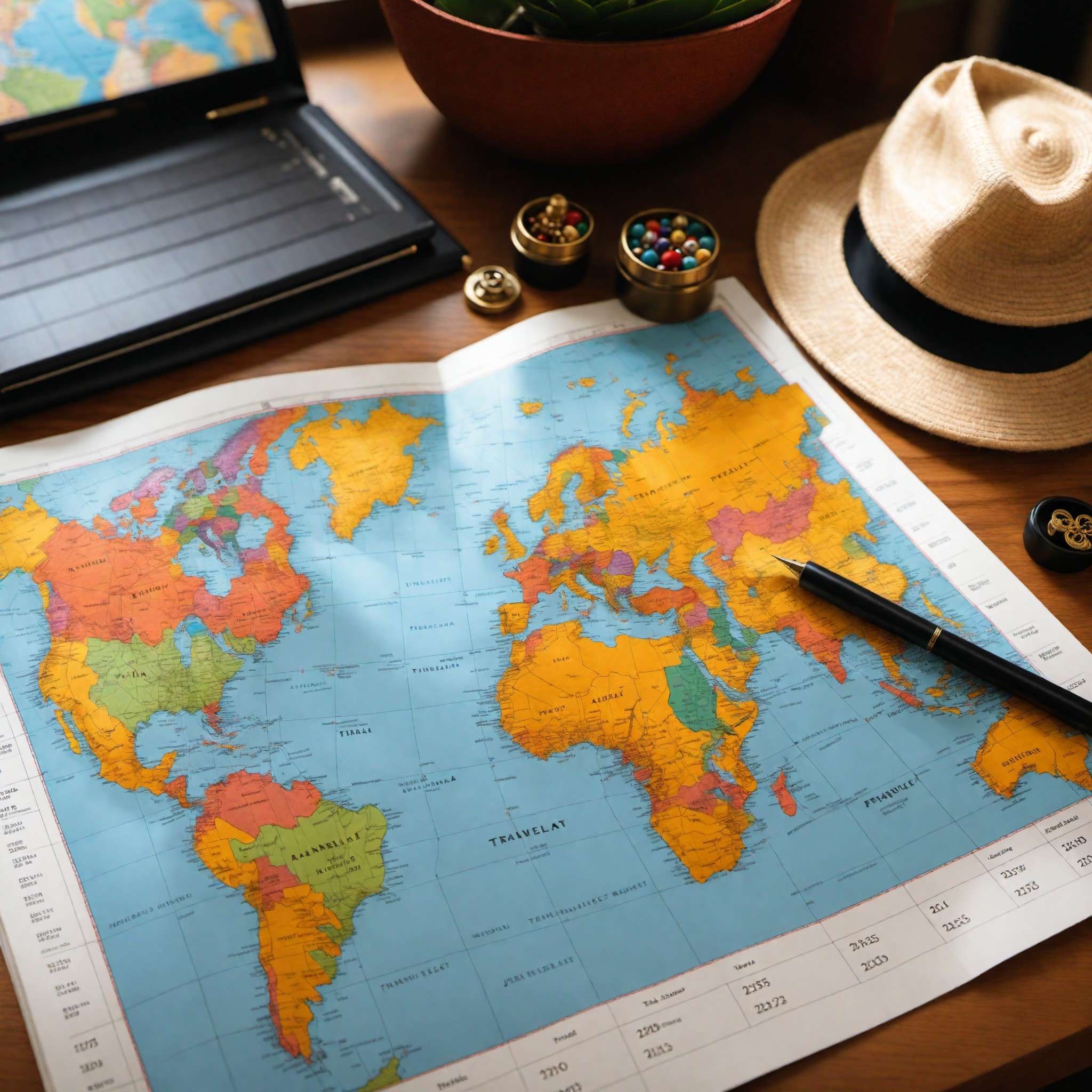
© Copyright , ZombieBunny.Org
Creating a travel itinerary
Creating a travel itinerary is an exciting part of planning your solo adventure. It’s the blueprint of your journey, outlining where you’ll go, what you’ll do, and how much time you’ll spend at each place. A well-planned itinerary not only ensures you make the most of your time but also helps you manage your budget and enhances your overall travel experience.
Start by identifying the key attractions and experiences you want to include in your trip. Consider your interests, whether it’s history, nature, culture, food, or adventure. Then, map out a route that allows you to experience these highlights in a logical and efficient manner. Remember to factor in travel time between destinations and consider the best time to visit each place.
However, while it’s important to have a plan, flexibility is key when traveling solo. Leave room for spontaneous adventures, downtime, and unexpected changes. A rigid itinerary can drain the joy out of your journey. The beauty of solo travel lies in its flexibility – the freedom to change plans on a whim, linger longer at a place you love, or explore an unplanned detour.
Also, consider including local experiences in your itinerary. Attend a local event, take a cooking class, or join a community volunteer project. These experiences can enrich your journey, offering insights into the local culture and creating meaningful memories.
In essence, creating a travel itinerary is a balance between planning and spontaneity. It’s about making the most of your time while leaving room for the unexpected. So, as you plot your solo journey, remember to plan wisely, but also embrace the freedom and flexibility that solo travel offers.
Budgeting for your travel
Budgeting is a critical aspect of travel planning, especially for solo travelers. A well-planned budget helps you manage your finances effectively, avoid unexpected costs, and enjoy your journey without financial stress. It ensures that your travel experience is not just memorable, but also financially sustainable.
When budgeting for your trip, consider all possible expenses. These include not just the obvious costs like flights, accommodation, and meals, but also less obvious ones like travel insurance, visas, local transportation, and entrance fees for attractions. Also allocate a budget for shopping, activities, and unexpected expenses.
Research is key in budget planning. Understanding the cost of living at your destination can help you estimate your daily expenses. Online travel forums, blogs, and guidebooks can provide valuable insights into average costs for meals, accommodation, and activities.
However, while it’s important to stick to your budget, don’t let it restrict your travel experience. Consider your budget as a guide rather than a strict rule. Allow some flexibility for unexpected opportunities or experiences that may enhance your journey.
Remember, budgeting is not about limiting your experiences, but maximizing them in a financially responsible way. It’s about finding the balance between your travel aspirations and your financial reality. And with careful planning, budget travel can still offer rich experiences and unforgettable memories.
In essence, budgeting for your travel is an important step in your travel planning process. It ensures you can enjoy your solo adventure without financial worries, making your journey as fulfilling and stress-free as possible.
Choosing the right travel insurance
Choosing the right travel insurance is an essential part of planning for a solo trip. It’s a safety net that protects you from unexpected costs and risks associated with traveling. Whether it’s medical emergencies, trip cancellations, lost baggage, or travel disruptions, having the right travel insurance can give you peace of mind and financial protection during your journey.
When choosing travel insurance, it’s important to consider your specific needs and risks. Some key factors to consider include the destinations you’re visiting, the duration of your trip, your planned activities, and your personal health condition. Ensure the policy covers medical expenses, including emergency evacuation and repatriation. Check if it covers trip cancellation or interruption, lost or delayed baggage, and travel delays.
It’s also crucial to understand the terms and conditions of the policy. Know the coverage limits, deductibles, and exclusions. Check how to make a claim and what documentation is required. Remember, the cheapest policy may not provide the best coverage. It’s worth investing in a comprehensive policy that provides adequate protection.
Finally, buy your travel insurance as soon as you’ve booked your trip. This ensures you’re covered if you need to cancel your trip due to unforeseen circumstances.
In essence, choosing the right travel insurance is a crucial step in your travel planning process. It provides financial protection, peace of mind, and a safety net for unexpected events during your solo adventure. So, as you prepare for your journey, make sure to invest time in choosing the right travel insurance for your needs.
Safety Measures: Protecting Yourself on the Road
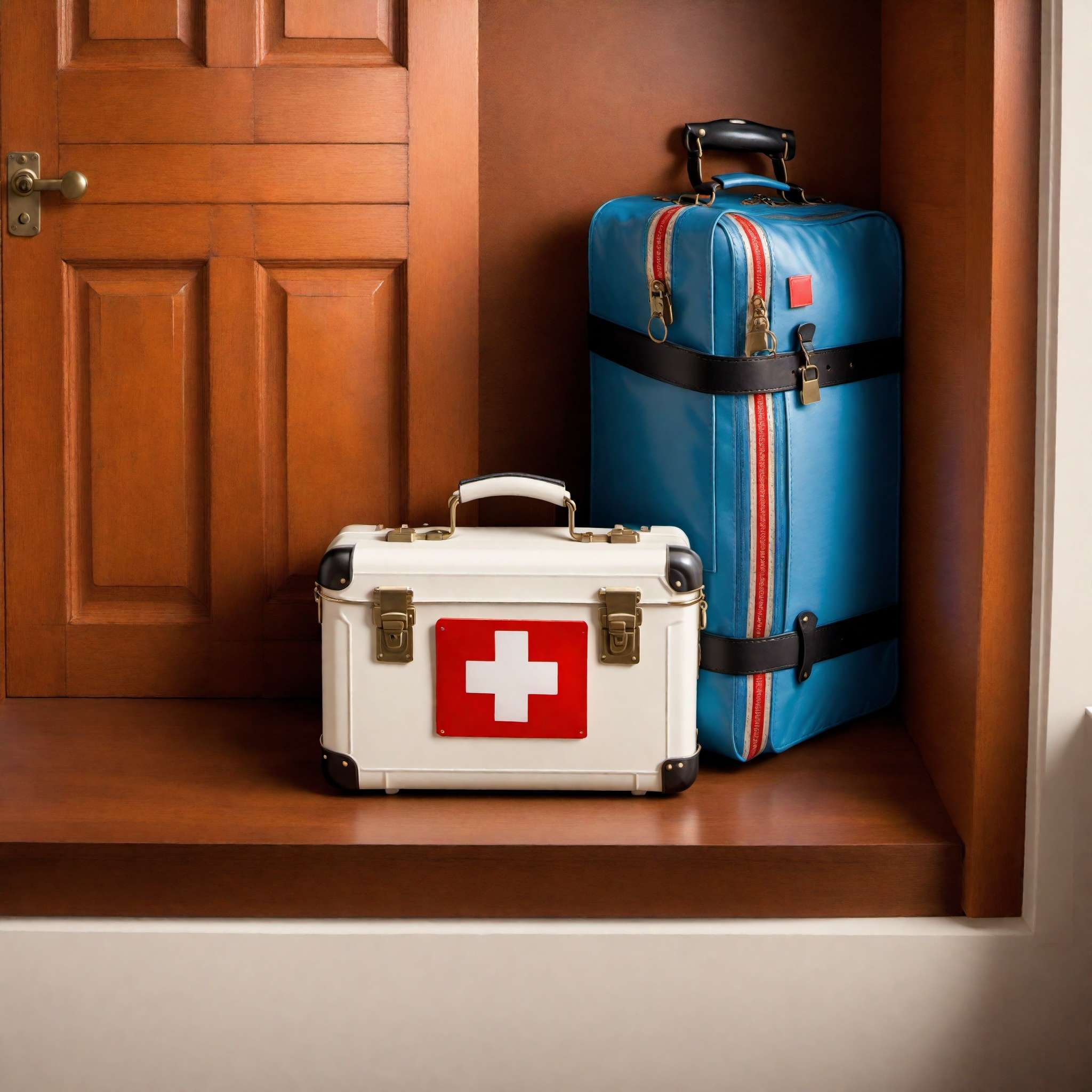
© Copyright , ZombieBunny.Org
Importance of personal safety while traveling alone
Personal safety is a paramount concern, especially for solo travelers. It’s an essential consideration that can significantly impact your travel experience. Prioritizing your safety ensures that your journey is not just enjoyable but also free from unnecessary risks and worries.
Traveling alone can pose unique safety challenges. From navigating unfamiliar environments to dealing with language barriers or cultural differences, solo travelers need to be vigilant and proactive about their safety. However, it’s important to remember that most of these challenges can be managed effectively with preparation, awareness, and common sense.
Understanding the safety landscape of your destination is a crucial first step. Research about common safety issues, reliable local emergency contacts, and safe and unsafe areas. Use this information to make informed decisions about your itinerary, accommodation, and activities.
Adopting safe travel practices is equally important. This includes staying aware of your surroundings, avoiding risky situations, keeping your belongings secure, and maintaining regular contact with family or friends back home. Trusting your instincts is often your best safety tool.
It’s also essential to respect local laws, customs, and etiquette. This not only keeps you out of trouble but also fosters a respectful relationship with the local community.
In essence, personal safety should be a top priority when planning and undertaking a solo trip. It’s about being prepared, staying alert, and making smart decisions. So, as you embark on your solo adventure, remember to put safety first, without letting it dampen your spirit of exploration and adventure.
Local emergency services and helplines
Knowing local emergency services and helplines is a crucial safety measure for solo travelers. Having this information at your fingertips can make a significant difference in an emergency situation, providing immediate assistance and peace of mind.
Every country has different emergency numbers for services such as police, fire, and ambulance. Be sure to research and note down these numbers before you depart. It’s also worth finding out if there’s a general emergency number that covers all services.
You should also identify the location and contact details of the nearest hospital and embassy or consulate of your home country. If you have specific health concerns, it may be worthwhile to locate nearby pharmacies or clinics that cater to your needs.
In addition to emergency services, there may be other helpful helplines available. This could include tourist helplines, women’s safety helplines, or road assistance services. These resources can provide valuable assistance in less urgent but still important situations.
Remember, in an emergency situation, clear and calm communication is key. Keep your emergency information in a readily accessible place and consider sharing it with a trusted contact back home.
In essence, knowing your local emergency services and helplines is a critical safety measure for solo travelers. It’s a part of your safety toolkit that can provide immediate assistance and peace of mind during your journey. So, as you prepare for your solo adventure, remember to equip yourself with this vital information.
Staying aware and vigilant
Staying aware and vigilant is an essential safety practice for solo travelers. It’s about being attuned to your surroundings, understanding the local context, and making sensible decisions. This proactive approach can significantly enhance your safety and provide a more enjoyable and stress-free travel experience.
Being aware starts with observing your environment. Pay attention to local behavior, social norms, and potential safety risks. This can provide valuable insights into how to navigate your destination safely and respectfully. It can also help you identify potential hazards or suspicious activities.
Vigilance is equally important. Keep your belongings secure, especially in crowded places or when using public transportation. Be cautious about sharing personal information with strangers or posting your location on social media. Avoid risky situations, like walking alone at night in unfamiliar areas or accepting offers from unofficial tour guides or taxis.
Trust your instincts. If something feels off, it probably is. Don’t be afraid to remove yourself from uncomfortable situations or to seek help if you feel threatened. Your safety is always the top priority.
Remember, being aware and vigilant doesn’t mean being paranoid or fearful. It’s about making informed decisions, respecting your environment, and prioritizing your safety.
In essence, staying aware and vigilant is a proactive safety strategy for solo travelers. It’s a skill that enhances your safety, fosters respect for the local culture, and contributes to a more enjoyable and enriching travel experience. So, as you embark on your solo adventure, remember to stay alert and trust your instincts.
Respecting Local Sensibilities: Do’s and Don’ts
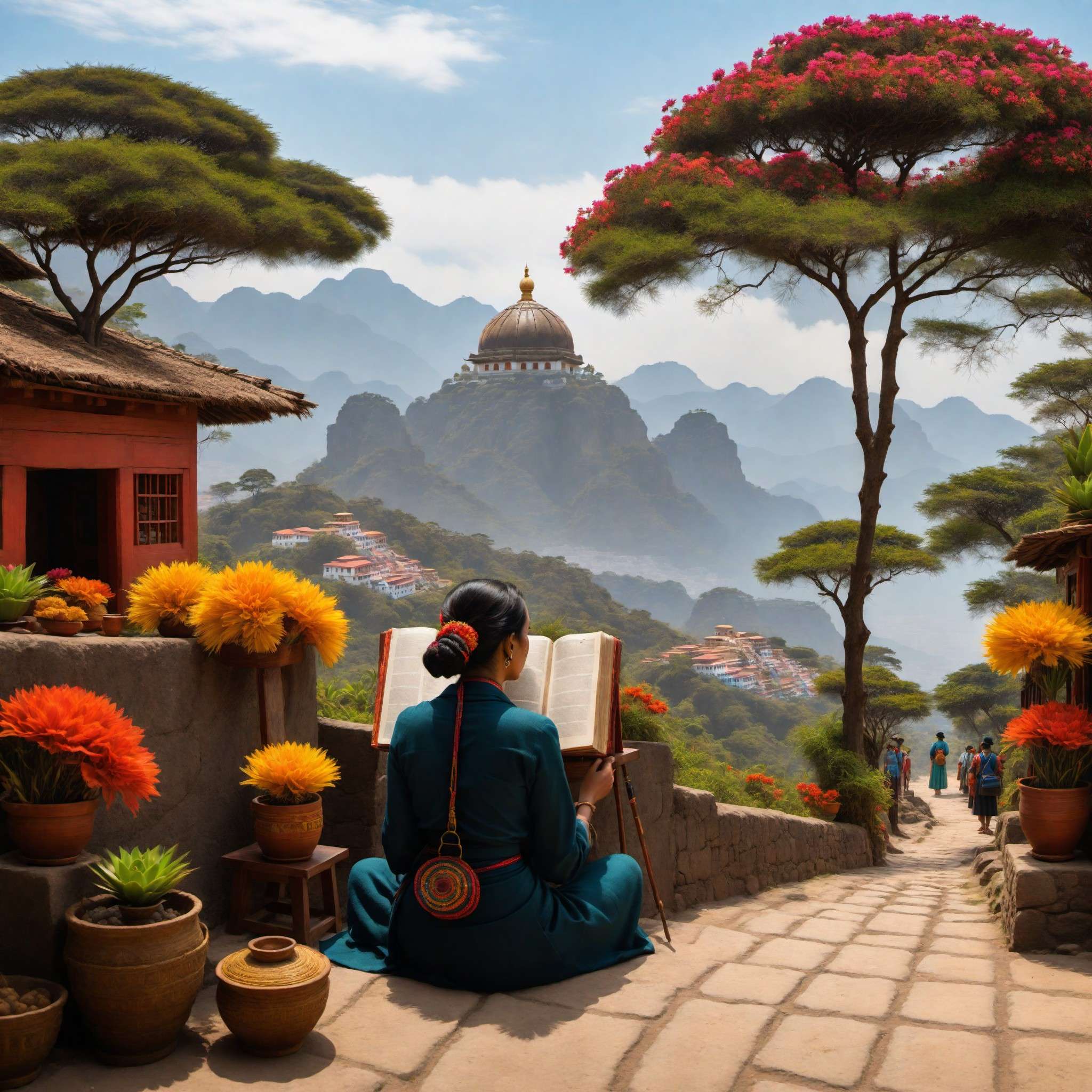
© Copyright , ZombieBunny.Org
Understanding local etiquette and customs
Understanding local etiquette and customs is an important aspect of traveling, especially for solo travelers. It’s about respecting and appreciating the unique cultural nuances of the places you visit. This understanding not only enhances your travel experience but also fosters a respectful relationship with the local community.
Local etiquette and customs can cover a wide range of behaviors, from greeting styles and dining etiquette to dress codes and social norms. These customs can vary greatly from one place to another and can often be quite different from what you’re used to at home. By understanding and respecting these customs, you demonstrate respect for the local culture and people.
Researching local customs and etiquette should be part of your pre-travel preparation. Guidebooks, travel blogs, and cultural exchange forums can provide valuable insights. When you arrive at your destination, observe how locals interact and behave. When in doubt, don’t hesitate to ask. Most locals appreciate your effort to understand and respect their customs.
Remember, respecting local etiquette and customs is not just about avoiding faux pas. It’s about embracing diversity, fostering cross-cultural understanding, and enriching your travel experience.
In essence, understanding local etiquette and customs is a key to a respectful and enriching travel experience. It’s a testament to the diversity of cultures in the world and an opportunity for personal growth. So, as you prepare for your solo adventure, make sure to delve into the etiquette and customs of your destination.
Respecting religious sentiments
Respecting religious sentiments is an important aspect of responsible travel, especially for solo travelers. Religion often plays a significant role in shaping a culture’s traditions, customs, and social norms. Therefore, understanding and respecting religious sentiments can not only enhance your travel experience but also foster a respectful relationship with the local community.
Religious customs and norms can vary greatly across different cultures and regions. They can influence dress codes, dietary practices, social interactions, and even the layout of cities and architecture. By understanding and respecting these religious customs, you demonstrate cultural sensitivity and respect for the local community.
Visiting religious sites can be a rich cultural experience. However, it’s important to follow the specific etiquette associated with these places. This could include removing shoes, covering your head, or refraining from photography. Always respect these rules, even if they might seem unfamiliar or unusual.
Remember, respecting religious sentiments goes beyond simply following rules. It’s about understanding and appreciating the role of religion in a culture’s identity and social fabric. It’s about fostering a sense of mutual respect and understanding.
In essence, respecting religious sentiments is a key aspect of responsible and respectful travel. It enriches your travel experience, fosters cross-cultural understanding, and contributes to a more peaceful world. So, as you prepare for your solo adventure, make sure to learn about and respect the religious sentiments of your destination.
Avoiding cultural appropriation
Avoiding cultural appropriation is a critical aspect of responsible and respectful travel, particularly for solo travelers. Cultural appropriation involves borrowing or imitating elements of a culture without proper understanding, respect or permission, often in a manner that reinforces stereotypes or marginalizes the culture. As travelers, it’s essential to appreciate and respect cultures without appropriating them.
Cultural appreciation involves learning about and understanding a culture, engaging respectfully with its traditions, and crediting its origins. It’s about embracing diversity and fostering cross-cultural understanding. On the other hand, cultural appropriation often involves exploiting cultural elements for personal gain or amusement, often without understanding or respect.
It’s crucial to understand the difference between these two and navigate your interactions and experiences accordingly. For instance, participating in a traditional dance at a local festival can be a form of cultural appreciation, while wearing a sacred cultural symbol as a fashion accessory without understanding its significance can be considered cultural appropriation.
Remember, the goal of cultural exchange during travel should be to foster understanding, respect, and appreciation. It should be a two-way dialogue that promotes mutual respect and enrichment.
In essence, avoiding cultural appropriation is a key part of being a responsible and respectful traveler. It’s about embracing diversity, fostering cross-cultural understanding, and acknowledging the richness of the world’s cultures. So, as you embark on your solo journey, remember to appreciate and respect the local culture without appropriating it.
Making Local Connections: The Power of Friendship
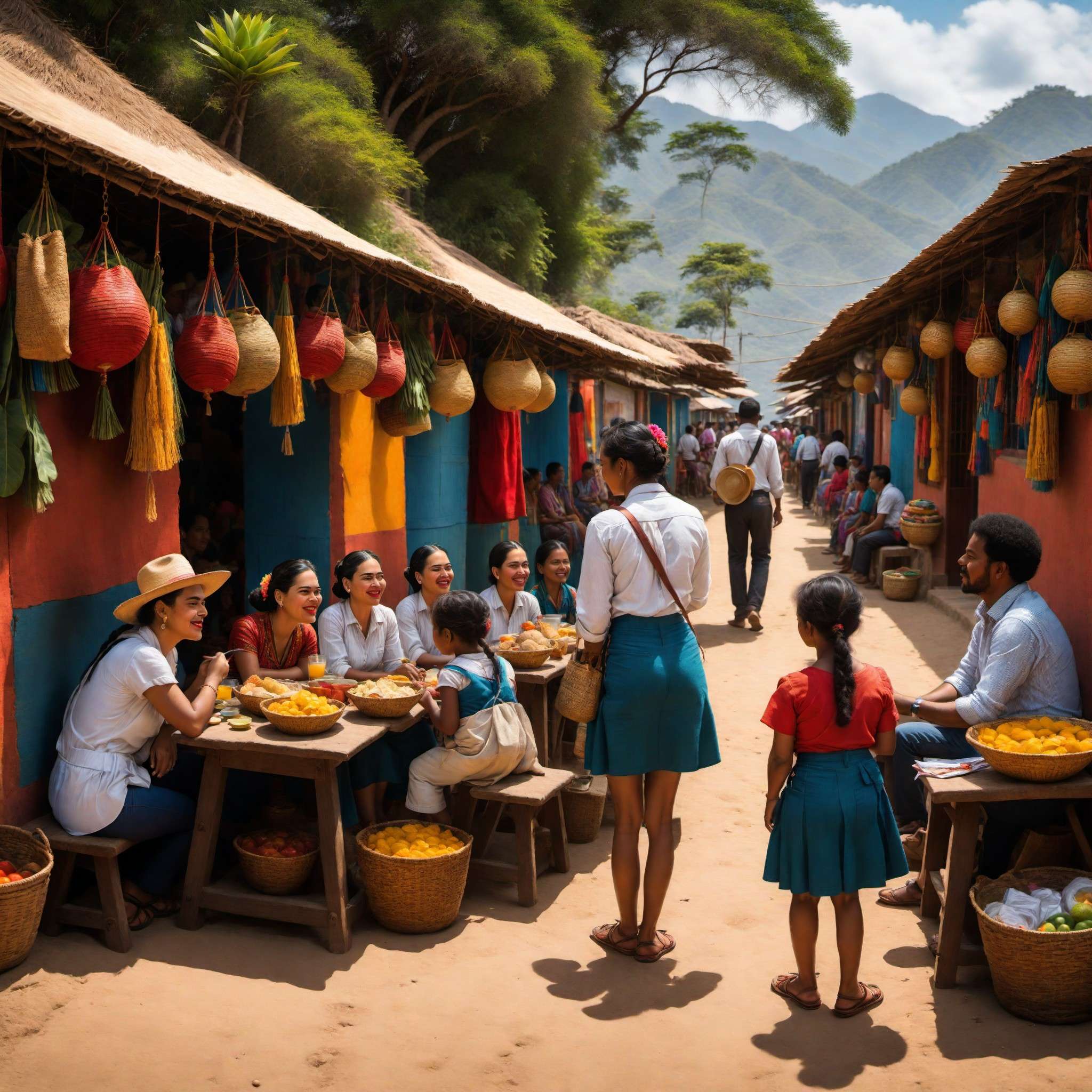
© Copyright , ZombieBunny.Org
Interacting with locals
Interacting with locals is one of the most enriching aspects of travel, especially for solo travelers. It offers a unique opportunity to understand the local culture, customs, and way of life from a firsthand perspective. Moreover, these interactions can lead to meaningful connections and friendships that add a special dimension to your travel experience.
Engaging with locals can take various forms. It could be a conversation with a shopkeeper, a shared meal with a local family, or a local event or festival. These interactions can provide valuable insights into the local culture, history, and traditions that you won’t find in guidebooks.
When interacting with locals, respect and sensitivity are key. Be aware of cultural norms, respect personal boundaries, and communicate with kindness and openness. Learning a few phrases in the local language can also break the ice and show your respect for their culture.
Remember, authentic local interactions are based on mutual respect and benefit. Avoid treating these interactions as a cultural spectacle or a photo opportunity. Instead, focus on genuine engagement, learning, and exchange.
In essence, interacting with locals can greatly enhance your solo travel experience. It offers a richer understanding of the place, fosters cross-cultural dialogue, and creates lasting memories. So, as you embark on your solo adventure, be open to making local connections and embracing the power of friendship.
Participating in community events
Participating in community events is a wonderful way to immerse yourself in the local culture and make meaningful connections during your solo journey. These events, be they festivals, markets, or local gatherings, offer a vibrant showcase of local traditions, customs, and community spirit. Moreover, they provide an authentic and interactive platform for cultural exchange.
Community events can range from religious ceremonies and cultural festivals to local sporting events or farmers’ markets. Participating in these events can offer rich insights into the local way of life, traditions, food, music, and more. It’s a chance to not just observe but actively participate in the local culture.
When participating in community events, it’s important to be respectful and mindful of local customs. Understand the significance of the event, follow the local etiquette, and participate in a way that respects the local culture. Remember, you are a guest in their community, and your actions should reflect that.
Participating in community events can also be a great way to support the local economy. Whether it’s buying local crafts at a market or paying an entry fee for a festival, your contribution can support local businesses and initiatives.
In essence, participating in community events can significantly enrich your solo travel experience. It provides a deeper understanding of the local culture, fosters meaningful connections, and supports the local community. So, as you plan your solo adventure, look out for opportunities to engage with the local community through their events.
Volunteering opportunities
Volunteering during your travels offers a unique opportunity to deeply engage with the local community, contribute positively, and create lasting memories. For solo travelers, it can also provide a sense of purpose, a chance to learn new skills, and an opportunity to form meaningful connections.
Volunteering opportunities can be diverse, ranging from teaching English and conservation work to community development and healthcare projects. Choose a volunteering opportunity that aligns with your interests, skills, and values. It’s important to ensure that your contribution is genuinely helpful and sustainable for the local community.
When selecting a volunteering opportunity, it’s essential to do thorough research. Understand the organization’s mission, their impact on the community, and the specific role you will be playing. Ensure that the organization operates ethically and responsibly, respecting the rights and culture of the local community.
Remember, volunteering is not about imposing your ideas or solutions. It’s about listening, learning, and working together with the local community towards a common goal. It’s about making a positive impact while gaining a deeper understanding of the local culture and context.
In essence, volunteering can add a rewarding dimension to your solo travel adventure. It offers a unique blend of cultural immersion, personal growth, and positive impact. So, as you plan your solo journey, consider incorporating volunteering into your itinerary. It can be a transformative experience that enriches not only your travel but also your life.
Sustainable Travel: Leaving Behind a Positive Impact

© Copyright , ZombieBunny.Org
What is sustainable travel
Sustainable travel, often referred to as responsible tourism, is all about making choices that minimize negative impacts and maximize positive ones on the destinations we visit. It’s about traveling in a way that respects the local environment, culture, and people, ensuring that they benefit from our visit.
Sustainable travel encompasses various aspects, from environmental conservation and cultural preservation to supporting the local economy and promoting social equity. It’s about making travel decisions that contribute to the preservation of natural habitats, respect cultural heritage, support local businesses, and promote fair and equitable relationships.
Practicing sustainable travel can involve a range of actions. It could mean choosing eco-friendly accommodations, reducing waste, respecting local customs, supporting local businesses, or volunteering in community projects. It’s about being mindful of your actions and their impacts, and making conscious choices to foster a positive impact.
Remember, sustainable travel is not about perfection but progress. It’s about making better choices wherever possible and continuously learning and improving. It’s about recognizing that our travel decisions can make a difference, and using that power responsibly.
In essence, sustainable travel is about traveling with a sense of responsibility and respect. It’s about exploring the world in a way that preserves it for future generations. So, as you embark on your solo adventure, consider how you can make your journey more sustainable and leave behind a positive impact.
How to travel sustainably
Traveling sustainably is about making conscious choices that minimize your negative impact and maximize your positive contribution to the places you visit. Here are a few practical ways to incorporate sustainability into your solo travel adventure.
Choose eco-friendly transportation options wherever possible. Opt for direct flights to reduce carbon emissions, use public transport or bike rentals for local travel, and consider walking when distances are short.
Support the local economy by choosing local accommodations, eating at local restaurants, and buying from local artisans. This not only contributes to the local economy but also offers a more authentic travel experience.
Be mindful of your waste. Carry a reusable water bottle, avoid single-use plastics, and dispose of your waste responsibly. If possible, participate in local clean-up activities or initiatives.
Respect the local culture and environment. Follow local customs and guidelines, especially when visiting cultural or natural sites. Avoid activities that exploit wildlife or disrespect cultural heritage.
Consider volunteering or contributing to local community projects. This not only enriches your travel experience but also leaves a positive impact on the community.
Remember, sustainable travel is about balance. It’s about finding ways to enjoy your travel while also respecting the places and people you visit.
In essence, traveling sustainably is a continuous journey of learning and improving. It’s about traveling with a sense of responsibility and respect. So, as you plan your solo adventure, consider how you can make your journey more sustainable and leave behind a positive impact.
Promoting local economy
Promoting the local economy is a key aspect of sustainable travel. It involves making conscious choices that support local businesses, artisans, and service providers. By doing so, you contribute to the local economy, support community development, and often enjoy a more authentic and enriching travel experience.
Choosing local accommodations is a great way to support the local economy. Whether it’s a locally run hotel, a guesthouse, or an Airbnb, your choice can directly benefit local owners and employees. Plus, local accommodations often offer a unique and personalized experience that big hotel chains can’t match.
Eating at local restaurants and cafes is another excellent way to promote the local economy. It offers a taste of local cuisine, supports local farmers and producers, and contributes to local businesses.
Shopping locally is equally important. Buy souvenirs and goods from local artisans and markets, ensuring your money goes directly to the makers. This not only supports local craft and tradition but also reduces the environmental impact associated with mass-produced goods.
Remember, promoting the local economy is not just about spending money. It’s about choosing where to spend it. It’s about making decisions that benefit the local community and contribute to sustainable development.
In essence, promoting the local economy is an integral part of sustainable travel. It’s a way to give back to the places you visit, support community development, and enrich your travel experience. So, as you plan your solo adventure, consider how you can support the local economy through your travel choices.
Conclusion: The Unforgettable Experience of Solo Travel

© Copyright , ZombieBunny.Org
Recap of the journey
Embarking on a solo journey is an unforgettable experience filled with unique adventures, personal growth, and meaningful connections. It’s about stepping out of your comfort zone, exploring new places, and embracing different cultures. As we recap this journey, let’s revisit the key elements that make solo travel a truly enriching experience.
The journey starts with careful planning. From choosing the right travel insurance to understanding the local culture and customs, planning is a crucial step that sets the tone for your travel experience. It’s about preparing yourself for the journey physically, mentally, and emotionally.
During the journey, safety and respect are paramount. Whether it’s staying vigilant, respecting local customs, or avoiding cultural appropriation, your actions should reflect a sense of responsibility and respect for the places and people you encounter.
Making local connections adds a special dimension to your journey. Interactions with locals, participation in community events, or volunteering can lead to meaningful connections and enrich your travel experience.
Sustainable travel is a key theme throughout the journey. From supporting the local economy to reducing waste and respecting the local culture and environment, your travel decisions can leave behind a positive impact.
In essence, solo travel is a journey of self-discovery, cultural immersion, and personal growth. It’s a testament to the power of travel to transform us, connect us, and inspire us. So, as you look back on your solo adventure, remember the unique experiences, lessons learned, and connections made along the way.
Benefits of solo travel
Solo travel offers an array of benefits that make it a unique and rewarding experience. It’s an opportunity to explore the world at your own pace, challenge yourself, and gain a deeper understanding of different cultures and lifestyles.
One of the key benefits of solo travel is the freedom and flexibility it offers. You can design your itinerary, explore places of your interest, and make spontaneous decisions without having to coordinate with others. This freedom can lead to unexpected adventures and enriching experiences.
Traveling alone also fosters self-discovery and personal growth. It challenges you to step out of your comfort zone, solve problems independently, and adapt to new situations. These experiences can boost your confidence, resilience, and personal skills.
Solo travel also encourages meaningful connections. Whether it’s interacting with locals, forming friendships with fellow travelers, or volunteering in local communities, these connections can deeply enrich your travel experience and broaden your perspective.
Sustainable travel is another benefit of solo travel. Traveling alone often allows for more sustainable choices, such as using public transportation, staying in local accommodations, and supporting local businesses.
In essence, the benefits of solo travel extend beyond the journey itself. It’s an enriching experience that fosters personal growth, cultural understanding, and sustainable practices. So, as you reflect on your solo adventure, remember the unique benefits that make it such an unforgettable experience.
Encouragement for future solo travelers
Embarking on a solo journey can seem daunting, but it’s an adventure filled with personal growth, unforgettable experiences, and meaningful connections. For those contemplating their first solo trip or planning their next, here is some encouragement to take that leap.
Remember, preparation is your best friend. Do your research, understand your destination, and plan for safety and sustainability. This preparation will provide a strong foundation for a successful journey.
Embrace the freedom and flexibility that solo travel offers. This is your journey, and you have the freedom to shape it as you wish. Explore new places, try new activities, and make spontaneous decisions that enrich your travel experience.
Don’t shy away from challenges. They are opportunities for growth, resilience, and self-discovery. Trust your abilities, learn from your experiences, and celebrate your achievements.
Engage with the local community and culture. Interact with locals, participate in community events, and respect local customs and traditions. These interactions can offer a deeper understanding of the local culture and create lasting memories.
Finally, remember to travel sustainably. Make conscious choices that support the local economy, respect the local culture and environment, and leave a positive impact.
In essence, solo travel is an unforgettable adventure that offers personal growth, cultural immersion, and meaningful experiences. So, as you contemplate your solo journey, remember that the world is waiting for you. Embrace the adventure, explore the world, and enjoy the unforgettable experience of solo travel.
Please support our site and purchase something from our store.


